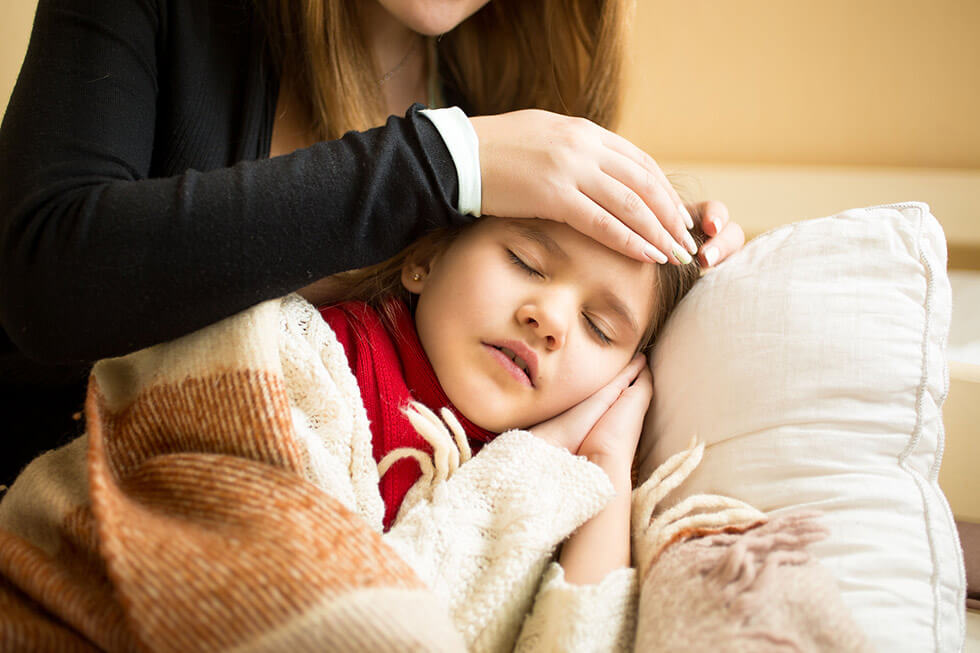It is 1 AM in the morning and you hear your child fussing. You walk in to check on him and notice he is “burning up!” What do you do? When do you worry? When do you call your doctor? I want to try to answer a few of these questions in this article, but as always, if you have any questions regarding fevers, please don’t hesitate to reach out to our office.
So what do you do when you notice that your child is warm and fussy? The first thing that you want to do is check his temperature. Everyone has a “thermostat” in their brain that regulates body temperature. A normal body temperature is 98.6 degrees Fahrenheit but usually ranges between 1 degree below or above that. When someone gets and infection, one of the ways the body responds naturally to the infection is by raising body temperature to prevent the “germ” from reproducing or spreading. Normally, in babies, a rectal temperature of over 100.4 degrees Fahrenheit is considered a fever. There are several different types of thermometers on the market and numerous ways of checking a temperature, but the most reliable way is taking a rectal temperature with a rectal thermometer. Many rectal thermometers can also be used under the armpit to get a temperature, but it isn’t always as accurate when taken this way.
Once you’ve determined that your child has a fever, the most important thing to do is to make sure that he stays hydrated. Fevers cause a child (and adult) to lose fluids more quickly, so make sure your child is given lots of fluids and monitor their urine or wet diapers to make sure he is not getting dehydrated. If your child is uncomfortable with his fever, you can treat him with acetaminophen (any age) or ibuprofen (for babies and children over 6 months old.) If you have questions regarding dosing, we have a handy guide in our clinic that will tell you the correct dose, or you can always call us.
So when should you worry about fevers? This is a very good question! Children with fevers act ill and have little energy, but oftentimes, once you give them a dose of acetaminophen or ibuprofen, they perk right up after about 30-45 minutes. If this is the case, and your child is over 3 months old, it is alright for you to keep monitoring them over the next 72 hours. Please give your doctor a call as soon as possible if your child looks very ill, or is very fussy or sleepy, especially after giving him a fever reducing medication. Also call if he has been in a very hot place, has been complaining of headaches or stiff necks, sore throats, ear pain, or unexplained rashes, vomiting or diarrhea. Once again, make sure to monitor for signs of dehydration such as dry mouth, sunken soft spot or fewer wet diapers, or if we can’t keep fluids down. If any of these signs appear, make sure you call your doctor right away. If fevers rise above 104 degrees Fahrenheit at any age, call your doctor and if your child is under 3 months and has any fevers at all for any amount of time, call your doctor or go to the ER right away. Sometimes, fevers can cause children to have seizures, called febrile seizures. If your child has a febrile seizure, you will want to contact your doctor, and if the seizure is lasting longer than 5 minutes, call 911. If your child has a history of immune system problems, they may be at increased risk of serious infections and it is important to call your doctor right away.
In general, fevers are a normal part of a healthy immune system fighting infection. Hopefully this post helps answer some of your questions and if you have any additional questions or concerns, please feel free to call us at any time or schedule an appointment!
Dr. Yohanna
Resources: American Academy of Pediatrics, Healthychildren.org

